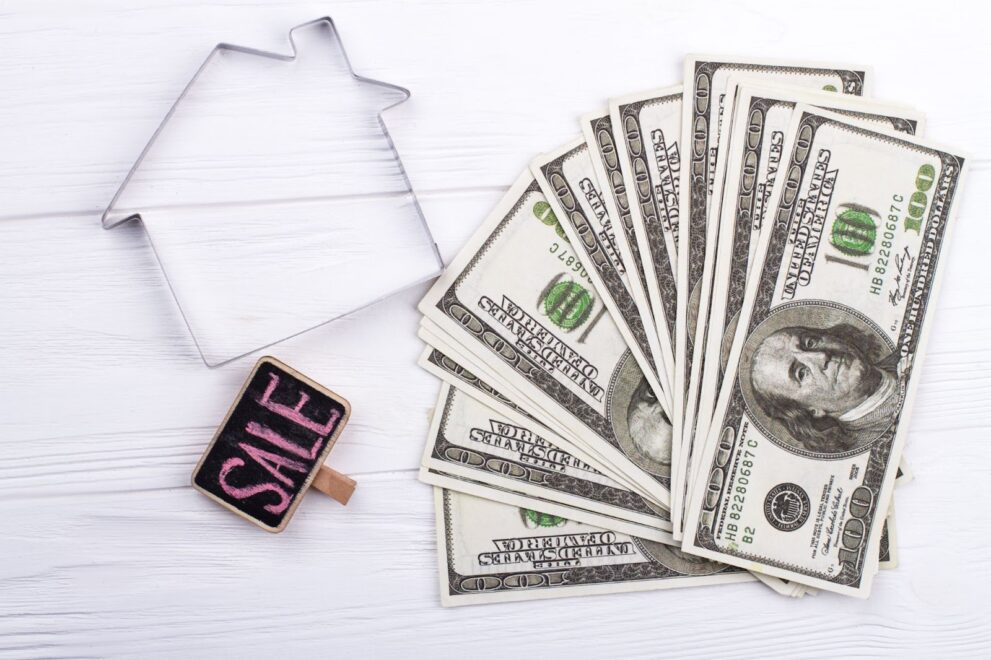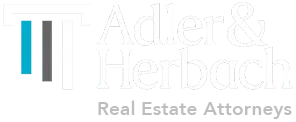What is Cash to Close on a House?
Cash to close (a.k.a ‘funds to close’) refers to the total amount of money a homebuyer needs to pay ton the closing day to complete the home purchase (when you close on your mortgage). It includes down payment, closing costs and prepaid expenses such as homeowner’s insurance, property taxes, etc.)
For example, if a house costs $300K and the buyer makes a 20% down payment of $60,000, the funds to close would include the $60,000 down payment plus any closing costs and prepaid items minus seller credits.
Closing costs on a house purchase include all the fees you pay to get a mortgage and officially transfer ownership, like appraisal fees, title fees, and loan origination charges.

Unlock Your Home’s Maximum Value with Our Essential Seller’s Guide!
Tailored exclusively for home sellers seeking to navigate the market with confidence and secure the best possible deal.

- Top 12 Estimators Unveiled: Cut through the clutter with a curated comparison, empowering you to choose the right tool without hassle.
- Clear, Actionable Insights: Simplified breakdowns translate complex tools into actionable knowledge, accelerating your journey to the right price.
- Strategic Pricing Mastery: Master the art of pricing, ensuring your home stands out to buyers while maximizing your profit.
- Tested and Proven Advice: Benefit from real-world assessments and proven strategies that streamline your sale, from listing to closing.
- Trusted by Your Neighbors: Join a community of local homeowners who’ve turned insights into action and success.
- The Key to a Lucrative Sale: Equip yourself with insider knowledge that transforms the selling process, ensuring you walk away with more.
Is cash to close out of pocket?
Yes, the cash to close amount is paid out-of-pocket by the homebuyer. It is not included in the mortgage loan or financed in any way. The buyer must have the ‘cash to close’ funds readily available to complete the real estate transaction.
This money covers the down payment, closing costs, prepaid items like home insurance and property taxes, and any other expenses due at closing that cannot be covered by the mortgage loan.
The cash to close must come directly from the buyer’s own funds, whether from savings, gift funds, or other liquid assets. It is the buyer’s responsibility to ensure they have adequate cash on hand to pay the entire amount at closing and finalize the home purchase.
What Does Estimated Cash to Close ‘From Borrower’ Mean?
The estimated cash to close from the borrower is a preliminary calculation of the cash a buyer needs at closing to buy the house. It includes the down payment, closing costs, and pre-paid costs. It does NOT include the mortgage loan amount, only the buyer’s funds.
For example, if your down payment is $20K and estimated closing costs are $5K, the estimated cash to close would be $25K.
This helps you know your cash needed for closing day.
How to Get Estimated Cash to Close?
The Loan Estimate and Closing Disclosure from the lender show estimated closing costs and cash to close.
Use the cash to close formula or a closing cost calculator. Subtract any seller or loan credits.
Example: With a $300,000 purchase price and 20% down payment ($60,000), plus $9,500 total closing costs, the estimated cash to close would be $69,500.
What Is Cash to Close ‘from Borrower’?
Cash to close from borrower is the final total cash you need at closing, as shown on the Closing Disclosure. It includes any changes in closing costs from the Loan Estimate.
If the Loan Estimate estimated $25K cash to close by estimating $5K closing costs, the actual cash to close would include the difference between real closing costs ($6K) and estimated closing costs ($5K).
So cash to close would be $25K + ($6K – $5K) = $26K.

For Buyers
Understand cash to close vs. closing costs. Our real estate attorneys can guide you through the process, offering you transparency while minimizing any financial surprises.

For Sellers
Learn about closing costs. Our real estate attorneys can help you navigate these expenses, saving you money and ensuring a smooth closing.
Call now & Get a Free Consultation!
Special Offer: Mention this website and get a free consultation on your first service!
How does the buyer know how much money to bring to closing?
Prior to closing, the lender provides the buyer with a closing disclosure document listing their final loan costs, real estate fees, and cash required to close. This helps the buyer know exactly how much cash they need to bring to closing to complete the real estate transaction. Buyers should bring the indicated amount in a cashier’s check or wire transfer to avoid delays. Settlement agents can also counsel the buyer on the exact cash they need to close.
Checking the closing disclosure against the cash to close estimate assists buyers in being prepared with funds on closing day.
What happens if the buyer don’t have enough money at closing?
If the buyer does not have enough cash to close and pay all required costs at the closing appointment, the real estate transaction cannot be completed. The buyer would need to delay closing and come up with the necessary funds before proceeding. If the buyer absolutely cannot come up with the cash to close, they may lose their deposit and the seller can put the home back on the market. Having insufficient funds at closing could cause the buyer to default on the purchase agreement.
Home Buyer’s Essential Guide
Unlock the Secrets to a Smooth Home Buying Experience!

Expert-Curated Guide:
- 43-page, mobile-friendly guide for first-time home buyers.
- Covers all aspects from mortgage acquisition to home settlement.
- Touted as the only needed guide for homebuyers.
- Widely praised by locals.
How to Calculate Cash to Close?
Cash to Close
=
Sum of
- Home Purchase Price
- Down Payment
- Closing Costs
- Prepaid Expenses
–
Sum of
- Loan Amount
- Fees rolled into loan
- Lender Credits
- Earnest Money Deposit
- Seller’s Refunds/Credits
What does Cash to Close Include?
Understanding each component can help you plan your finances better and avoid surprises on the closing day. Here are the components:

1. Down Payment
The down payment is the amount of money you pay upfront to purchase a home. It is usually a percentage of the home’s purchase price and varies depending on the type of loan you are getting.
For example,
- If you are getting a conventional loan, you may need to pay a minimum down payment of 5% to 20% of the home’s purchase price.
- The down payment requirements may be lower if you are getting a government-backed loan, such as an FHA or VA loan.
2. Closing Costs
Closing costs for buyers are fees charged by your mortgage lender, title company, and other third parties involved in the real estate transaction.
These costs include
- Origination fees,
- Appraisal fees,
- Title insurance cost,
- Escrow or closing fees
- Attorney fees,
- Homeowners association costs, and
- Other fees.
Mortgage lenders charge closing costs to cover the expenses involved in the processing and underwriting of your loan. The total closing costs vary depending on the loan amount, purchase price, and other factors.
In Illinois, mortgage lenders are required to provide you with a loan estimate that details your estimated closing costs.
3. Prepaids
Prepaids are expenses that you need to pay upfront to cover certain costs that will come due after the closing.
These expenses include
- Property taxes,
- Homeowner’s insurance premiums, and
- Upfront mortgage insurance premiums (if applicable)
The amount of prepaid expenses depends on the closing date and the interest rate of your home loan.

4. Lender Credits
Lender credits are funds your mortgage lender may contribute to offset some of your closing costs. It can help reduce your out-of-pocket expenses on the closing day.
However, note that lender credits may sometimes reflect a higher interest rate.
5. Deposits and Credits
Deposits and credits are amounts you have already paid for your home purchase. These amounts include your earnest money deposit and any seller credits you negotiated.
- The earnest money deposit is a show of good faith that you are serious about buying the home.
- The seller credits are amounts the seller agrees to pay toward your closing costs.
How to pay Cash to close?
When it comes to paying your cash to close, there are several different payment methods that you can use. Here are some of the most common options:
1. Wire Transfer
A wire transfer is a secure electronic transfer of funds from your bank account to the title company or mortgage lender’s account.
This is a quick and efficient way to transfer large amounts of money, but it may incur a fee from your bank.
2. Cashier’s Check or Certified Check
A cashier’s check, also known as a certified check, is a check issued by a bank that is guaranteed to have sufficient funds. When you request a cashier’s check from your bank, you must provide the full amount of the check upfront in cash, funds from your account, or another guaranteed payment method.
The bank verifies that the funds are available and sets them aside for the cashier’s check. This makes the check guaranteed and as good as cash. When the recipient deposits or cashes the cashier’s check, they are assured the money is there and available unlike a personal check which could potentially bounce. The bank fee for a cashier’s check is usually minimal.
3. Personal Check
You can also pay your funds to close with a personal check, but keep in mind that funds over $500 will need to be cleared before the transaction can be completed. For this reason, many title and settlement companies will not accept a personal check in excess of this amount.
4. Credit or Debit Cards
Some lenders may accept credit or debit card payments for some items, like loan application fees or appraisal fees, but once you get to closing, credit cards will not be accepted by the title company for cash to close payments.

5. Cash
In most cases, cash is not accepted as a payment method for cash to close in Illinois. Most title and escrow companies require you to pay your cash to close via cashier’s check or wire transfer. Because cash is more difficult to verify and track, it may raise suspicions of money laundering or fraud.
If you want to pay for your closing costs with cash, you must deposit it into your bank account well before the closing date and provide proof of the source of funds.
When going through the mortgage process as a buyer, you’ll notice cash to close ‘from Borrower’ figures prominently on your Loan Estimate disclosure.
But what do these amounts really mean?
I’ll break down the differences between estimated cash to close to/from borrower.
What is Cash to Close ‘To Borrower’?
Cash to close “to borrower” when refinancing is extra money you receive at closing. This happens when the new loan amount is more than paying off your existing mortgage and refinance fees. Use the extra cash for debt consolidation, covering lock extensions, or savings. Know the tax implications.
Cash to close ‘To borrower’ vs ‘from borrower’
Cash to close “To borrower” is money back to you, not money you owe. With a refinance, “cash to close from borrower” may show as a negative number or “cash to close To borrower”. In both cases, extra proceeds are paid to you at closing.
“Cash to close from borrower” is your out-of-pocket payment – your down payment, closing costs, minus any seller or loan credits.
Example:
- Down Payment: $20K
- Closing Costs: $5K
- Seller Credit: $3K
- Cash to Close from Borrower = $20K + $5K – $3K = $22K
In a refinance with $300K initial mortgage, $5K closing costs, but $310K refinance loan:
- Cash to Close ‘To Borrower’ = $310K – $300K – $5K = $5K
- So you receive $5K cash back at closing.
Get more clarification on
What’s the difference between closing cost and cash to close?
Closing costs are the fees charged by lenders and real estate agents/attorneys to process and finalize the home sale. This includes origination fees, appraisal costs, title insurance, escrow fees, and more. Cash to close encompasses the closing costs plus additional expenses the buyer has to pay at closing. This includes the down payment, prepaid homeowners insurance, one year of property taxes, and any prorated fees for the current month.
While closing costs are one component, cash to close represents the complete funds the buyer must have on hand to close on the purchase successfully.
How to Estimate Closing Costs?
Estimate buyer closing costs based on purchase price, location, and loan type. Closing costs include title insurance, appraisal fees, attorney fees, origination fees, prepaid property taxes, and insurance.
Use this guide to know how much are closing costs or you can use Smart Asset mortgage closing cost calculator to compute the ‘Closing costs’.
Example: For a $300,000 conventional loan home in Illinois, approximate costs are:
- Closing costs to third parties: $5,000
- Lender origination fee: $1,500
- Prepaid expenses: $3,000
Total estimated closing costs: $9,500
Get more clarification on
Cash to close vs down payment
The down payment is the portion of the home’s purchase price that the buyer pays upfront, often 20% or less with a mortgage loan. Cash to close includes the down payment plus all closing costs and prepaid items. While the down payment is a large component, cash to close includes additional expenses such as lender fees, escrow deposits, and prorated costs that must also be paid at closing. The cash to close is the buyer’s total cash requirement.
Does Cash to close include earnest money deposit?
The earnest money deposit is not typically included in the cash to close amount. The earnest money deposit (EMD) is a sum of money the buyer puts down to demonstrate serious intent to purchase the home. It is paid at the time an offer is made and held in escrow until closing.
The earnest money deposit goes toward the down payment and closing costs but is accounted for separately. It is not added into the estimated or final cash to close totals shown on the Loan Estimate or Closing Disclosure provided by the lender.
This is because the earnest money deposit has already been paid at the time of the offer and does not need to be brought to closing again. The cash to close amount contains other closing costs and fees that still need to be paid at settlement.
So while the earnest money deposit contributes to the buyer’s funds for the down payment and costs, it is considered separate from the cash to close amount which only contains amounts owed at the time of closing. The cash to close will not include funds like the EMD already paid earlier in the process.
Factors Affecting Cash to Close
The main things that impact your cash to close amount are:
- Home purchase price – The higher the price, the more cash needed.
- Interest rate – Lower rates reduce monthly payments but may increase upfront costs.
- Closing date – Prepaid costs like property taxes change based on closing date.
The cash to close estimate can change after getting the Loan Estimate and Closing Disclosure if the purchase price, closing date, or other factors change.
For example, if you’re buying a $300K home with 10% down and 4% closing costs, $3K prepaid costs, $1.5K lender credit, and $5K earnest money deposit:
Cash to Close = (Down payment + Closing costs) x Purchase Price + Prepaids – Lender credit – Earnest money
= ($42K + $3K) – $1.5K – $5K
= $38,500
So for this example, you’d need $38,500 cash to close.
Call now & Get a Free Consultation!
Special Offer: Mention this website (Northsidelegal.com) and get a free consultation on your first Real estate attorney service!
Significance of Cash to close in home financing
Having enough cash to close shows lenders that you can truly afford the home purchase. The cash to close amount pays for your down payment as well as all closing costs and fees. This demonstrates to the lender that you are financially prepared and ready for homeownership.
Putting more money down for the down payment results in you needing to borrow less for your mortgage loan. A higher down payment amount helps improve your debt-to-income ratio since your monthly mortgage payment will be lower. A better DTI ratio can help you qualify for more favorable mortgage rates and terms from lenders.
Knowing your estimated total cash to close figure early in the home buying process allows you to properly budget and save. You won’t risk being surprised by high closing costs right before closing if you are aware of the estimate ahead of time. Staying on top of your cash to close amount from the start results in a smoother home buying journey overall.
Tips for Managing Funds to close

- Determine Your Home Buying Budget
- Calculate total costs – down payment, closing, moving, repairs
- Factor in all home buying expenses
- Decide maximum you can spend
- Track All Expenses
- Record every home buying expense
- Log costs for down payment, inspections, closing
- Monitor spending to avoid going over budget
- Account for Small Fees
- Don’t overlook appraisal, title, inspection fees
- Small costs add up quickly
- Include all fees in cash to close estimate
- Negotiate with the Seller
- Ask seller to cover some closing costs
- Request seller include appliances or fixtures
- See if you can reduce cash needed for closing
- Have a Backup Plan
- Keep extra funds or financing available
- Plan for unforeseen repairs or costs
- Avoid being caught off guard by surprise expenses
- Maintain Savings
- Don’t drain all your accounts
- Keep savings cushion for emergencies
- Avoid tapping out all cash reserves
- Get Financial Advice
- Consult advisor to review budget
- Ask for guidance managing funds
- Gain expert strategies for home buying costs

